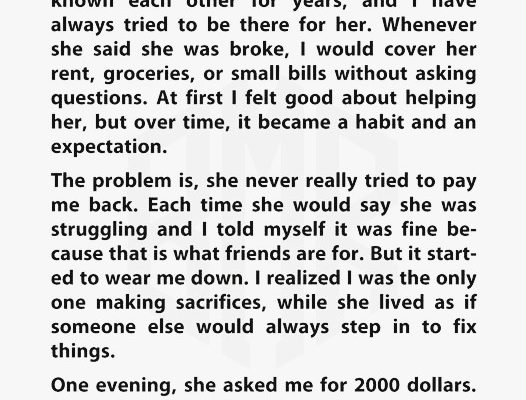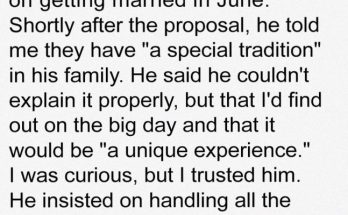I used to believe that helping a friend in need was the highest form of loyalty. For years, I supported my best friend financially—covering her rent, groceries, and bills without hesitation. She never paid me back, but I told myself that’s what friends do. The problem was, she stopped even pretending to try. It became routine: she’d cry broke, and I’d fix it. I worked hard to stay afloat, while she floated on my generosity. I didn’t realize I was being used until the day she asked for $2,000 and said, “You’re doing better, so it shouldn’t be a big deal.”
That comment hit me like a slap. I said no for the first time. The next day, she posted on social media about “selfish people who have everything but refuse to help.” I knew she meant me. I felt humiliated—after years of sacrifice, I was now the villain in her story. That betrayal burned deeper than any unpaid debt. I took a screenshot of her post and messaged her directly. I listed every dollar she owed me and told her I wanted it all back. If she refused, I warned her I’d take legal action.
She didn’t respond. But I wasn’t bluffing. I filed a formal claim and attached every receipt, message, and bank transfer. She was stunned when she received the notice. Suddenly, she was scrambling to apologize, saying she never meant to hurt me. But I was done. I had spent years being her safety net while she spun lies about me. This wasn’t just about money—it was about respect, boundaries, and the cost of betrayal. My revenge wasn’t loud or cruel. It was expensive, calculated, and overdue.
I’ve learned that friendship without reciprocity is just emotional labor. Saying “no” isn’t selfish—it’s survival. I don’t regret helping her, but I regret not stopping sooner. She taught me that guilt is a weapon, and silence is complicity. I now keep records, set boundaries, and walk away from one-sided relationships. The most expensive revenge isn’t about money—it’s reclaiming your worth. And I did.

